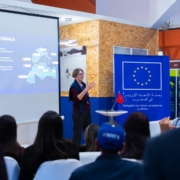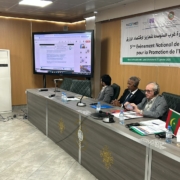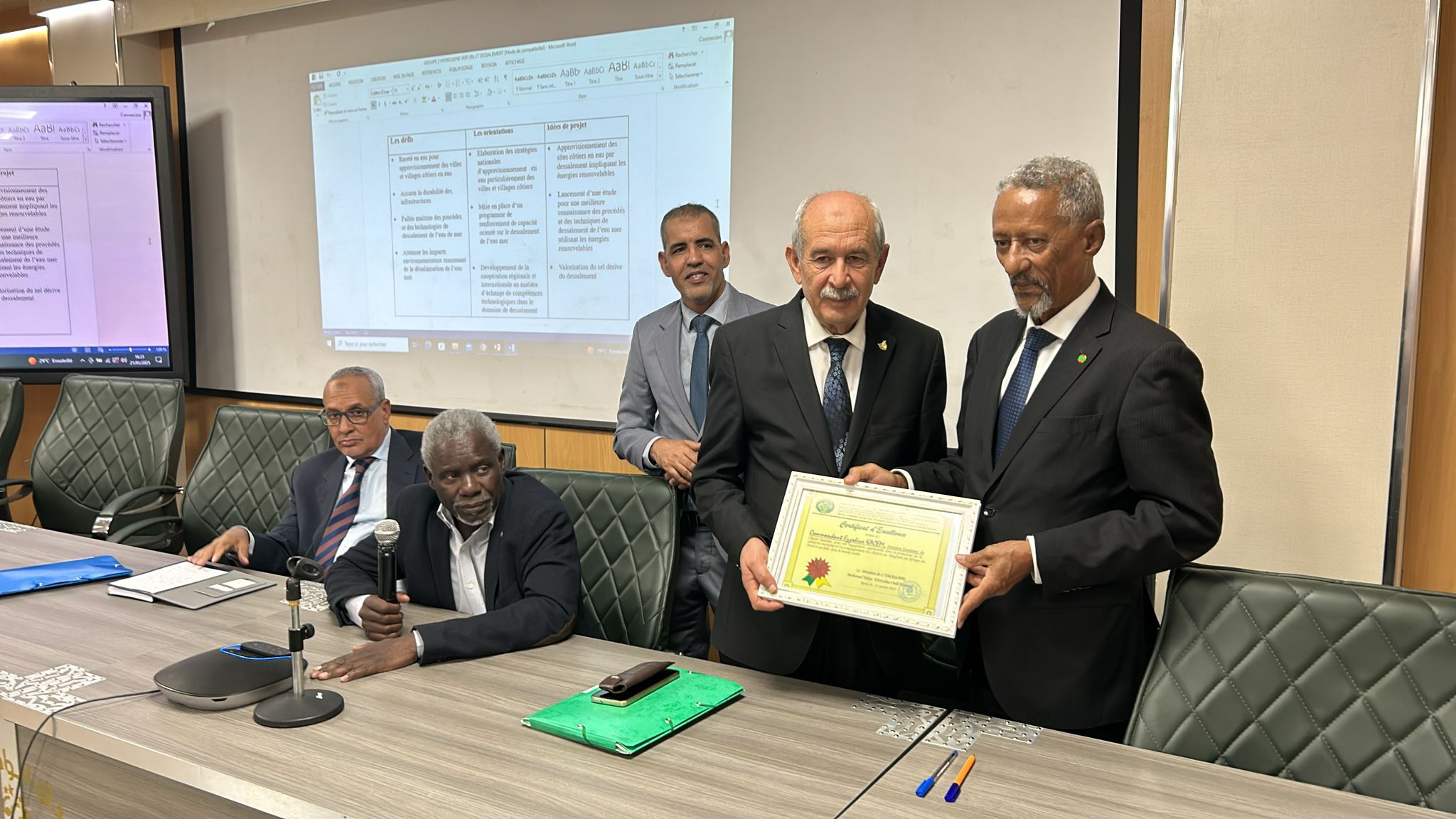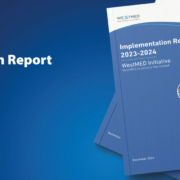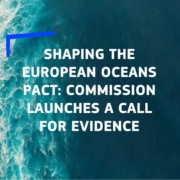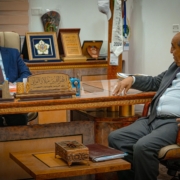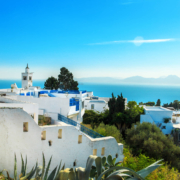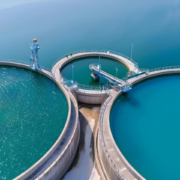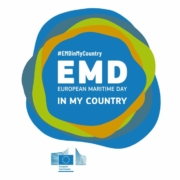Les développements de WestMED et de l’économie bleue marocaine présentés au Salon Halieutis 2025
WestMED Maroc a organisé une présentation sur l’économie bleue lors de la 7ème édition du Salon Halieutis au Maroc, une rencontre internationale biennale du secteur de la pêche. Elle l’a fait dans le cadre de l’exposition de la Délégation de l’UE au Maroc. Le salon s’est déroulé à Agadir du 6 au 9 février 2025 et avait pour thème : « Recherche et innovation pour un secteur de la pêche durable ».
Présentation conjointe avec la Commission de développement de l’économie bleue du Maroc : CIDEB
Suite à une proposition de la Délégation de l’Union européenne au Maroc, le Hub national marocain de WestMED, M. Hassan Agouzoul, a saisi l’opportunité d’inviter également Mme Shiham Fellahi pour une présentation conjointe axée sur l’économie bleue. Mme Fellahi est la coordinatrice de la Commission Interministérielle pour le Développement de l’Economie Bleue (CIDEB), qui a été créée en 2023 pour gérer le développement de la Stratégie Marocaine de l’Economie Bleue, officiellement lancée en février 2024.
Au début de sa présentation, Mme Elke Westenberger, agissant en tant que soutien au Centre national marocain de WestMED, a exprimé la gratitude de WestMED pour cette opportunité de présenter l’initiative WestMED à cette plate-forme.
Elle a présenté l’historique de cette initiative et les résultats obtenus grâce à l’aide apportée aux projets et aux idées de projets visant à renforcer l’économie bleue durable, principalement en aidant à trouver des partenaires de projet et des possibilités de financement. Elle a également souligné le travail des groupes thématiques régionaux de parties prenantes techniques qui ont été créés et qui se concentrent sur les discussions sectorielles et les propositions de projets conjoints : le transport maritime vert, l’aquaculture durable, l’Alliance des clusters maritimes et le groupe technique récemment créé sur le tourisme durable. Au cours de sa présentation, Mme Westenberger a fait des références directes à la future stratégie marocaine pour l’économie bleue.
Activités WestMED Maroc (à venir)
Mme Westenberger a également rappelé l’événement principal organisé par WestMED Maroc en 2024 : un dialogue national axé sur les principaux défis de la mise en œuvre de l’économie bleue au Maroc – en particulier en ce qui concerne la gouvernance institutionnelle intégrée, l’énergie, le dessalement de l’eau de mer, l’hydrogène vert et la biodiversité, la résilience climatique et le développement d’une stratégie nationale de tourisme bleu. Cet événement s’est déroulé avec la participation de décideurs politiques et d’acteurs privés de premier plan. Il a été suivi d’un aperçu des activités WestMED prévues pour 2025 au Maroc, principalement l’organisation d’un dialogue national sur l’économie bleue en personne ainsi que des webinaires sur l’économie bleue pour les parties prenantes des 9 régions côtières du Maroc avec l’objectif d’encourager la création de clusters maritimes dans chacune de ces régions.
Développement de l’économie bleue au Maroc
Mme Siham Fellahi, du Ministère de l’Economie et des Finances, Département du Budget, a ensuite pris la parole en sa qualité de coordinatrice de la Commission Interministérielle pour le Développement de l’Economie Bleue (CIDEB) qui a été créée dans le cadre de l’instrument de financement PforR (Program for Results) de la Banque Mondiale.
Le Blue Economy Results Program est une initiative stratégique soutenue par une contribution de 350 millions de dollars de la Banque mondiale et une subvention de 5 millions de dollars du fonds PROBLUE. Sous l’égide du CIDEB, huit ministères sont mobilisés pour renforcer la gestion des ressources marines, en intégrant le développement économique, la création d’emplois et la préservation de l’environnement. Des mécanismes de coordination, tels qu’une unité de gestion de projet, ont été mis en place, et la participation active des communautés locales est encouragée par le biais de projets innovants visant à soutenir le développement économique des communautés et la conservation des écosystèmes marins, conformément à l’ODD 14.
Elle a donné un aperçu de l’état de l’économie bleue au Maroc et de son importance nationale, ainsi que de la mise en œuvre du PforR de l’économie bleue visant à développer une stratégie marocaine de l’économie bleue sur 5 ans. Le programme comprend deux régions pilotes, Souss-Massa et Tanger-Tétouan-Al Hoceima, qui sont les principaux contributeurs à l’économie bleue grâce aux secteurs de la pêche et du tourisme. 8 organisations partenaires institutionnelles principales représentant des ministères, des agences gouvernementales et des instituts de recherche collaborent au déploiement du programme.
Mme Fellahi a mis un accent particulier sur le développement nécessaire des clusters maritimes et de la finance bleue, ce qui corrobore les principaux thèmes de travail identifiés également par le WestMED National Hub et augure bien des collaborations à venir cette année.
Ces deux présentations ont été suivies d’une discussion avec le public, qui a manifesté un grand intérêt pour les possibilités de financement disponibles, bien qu’il faille préciser que WestMED est un mécanisme d’assistance et ne finance pas lui-même les projets.
Ce fut un événement agréable dans un cadre collégial et informatif, et nous réitérons nos remerciements à l’UE pour son invitation et à Mme Fellahi pour sa présence et ses idées.
Pour plus d’informations : contactez Elke Westenberger ou Hassan Agouzoul (WestMED Maroc): morocco@westmed-inititiative.ec.europa.eu
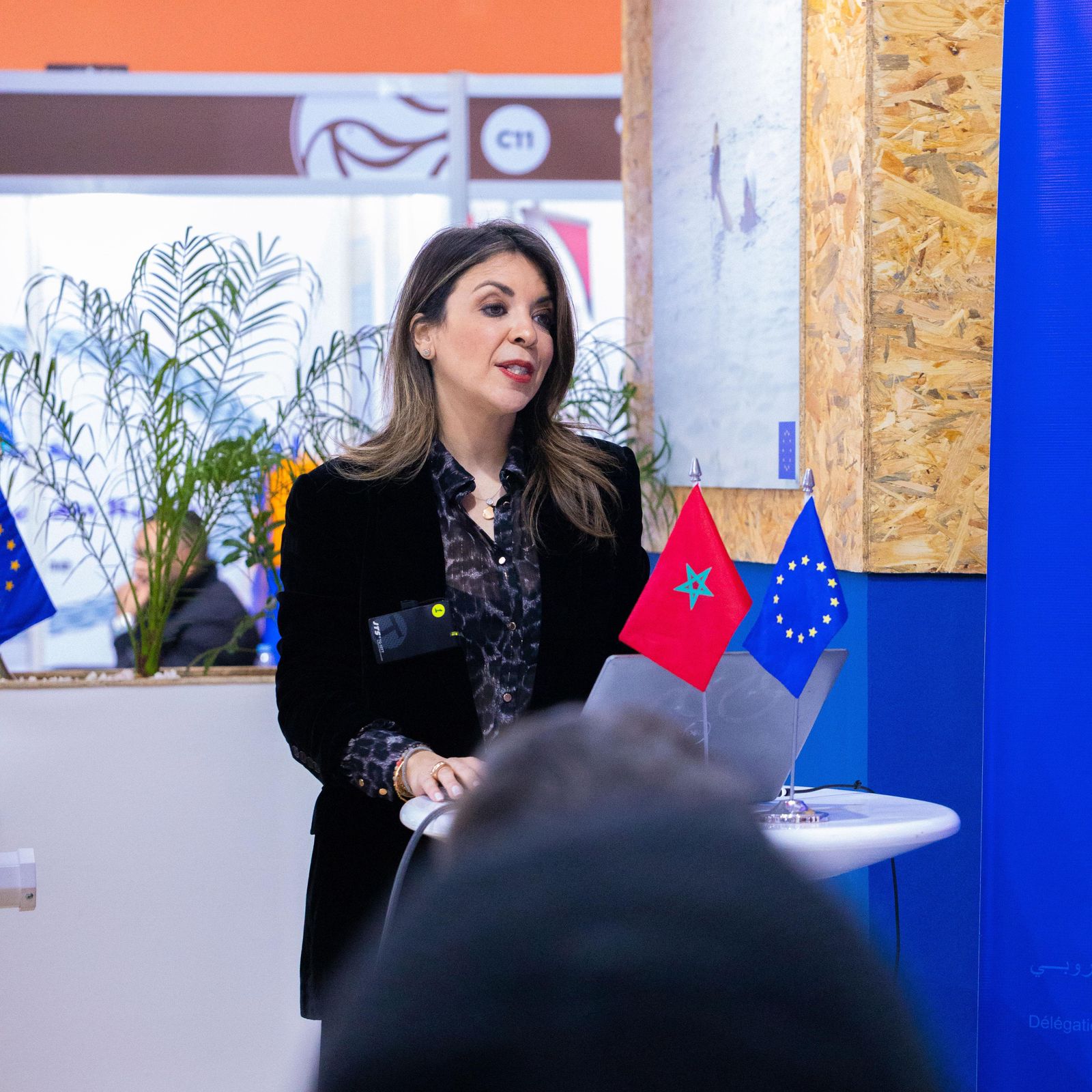

EU in Morocco links on this event:
https://www.linkedin.com/company/euinmorocco/
https://www.facebook.com/share/1Ek8iV7zks/?mibextid=wwXIfr
More information on the Blue Economy in Morocco

